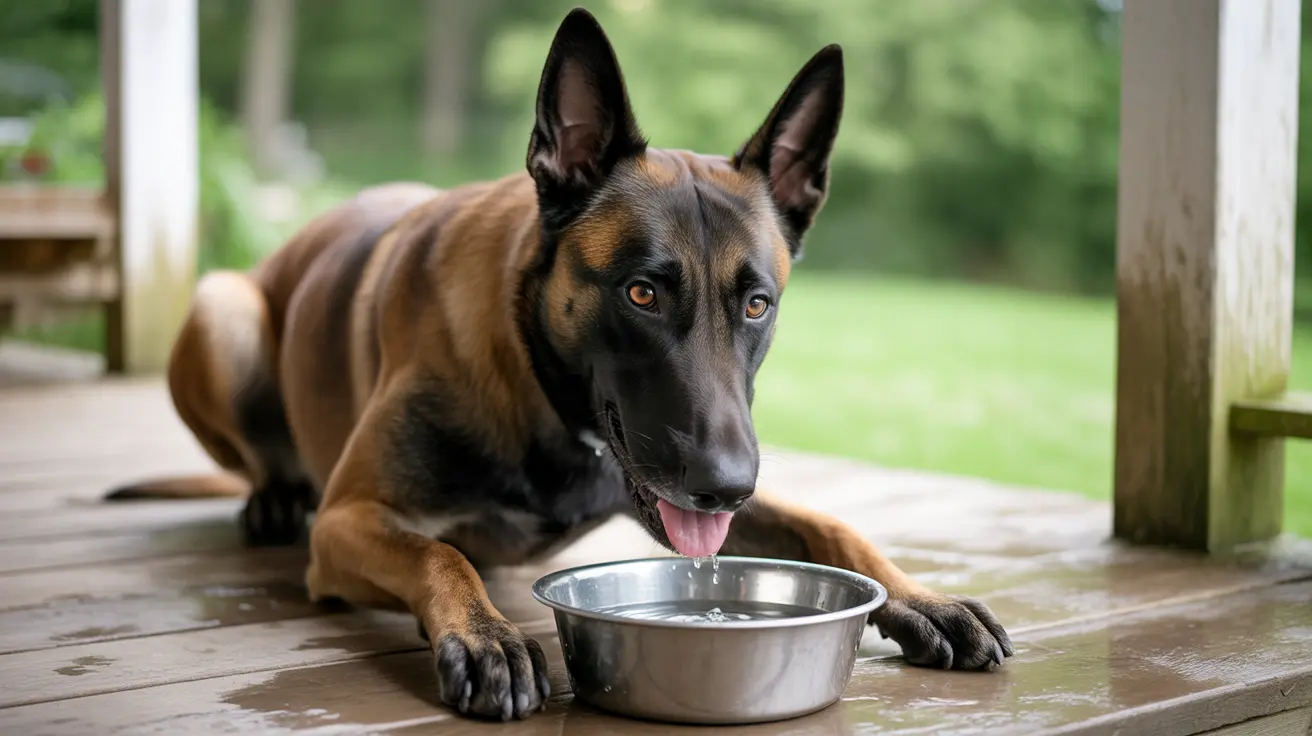Ensuring your dog drinks the right amount of water is crucial for their health and well-being. As a pet parent, understanding your dog's daily water requirements can help prevent serious health issues and maintain optimal hydration levels. This comprehensive guide will help you determine exactly how much water your dog needs and how to monitor their intake effectively.
Just like humans, dogs rely on water for essential bodily functions, from regulating body temperature to supporting organ health. However, their specific needs can vary significantly based on several factors, making it important to understand the guidelines and warning signs of improper hydration.
Understanding Daily Water Requirements for Dogs
The general rule of thumb is that dogs need approximately one ounce of water per pound of body weight daily. This means:
- A 10-pound dog needs about 10 ounces of water
- A 50-pound dog requires roughly 50 ounces of water
- A 100-pound dog should drink about 100 ounces of water
However, these are basic guidelines that may need adjustment based on various factors affecting your dog's hydration needs.
Factors That Influence Your Dog's Water Intake
Diet Type and Composition
Dogs eating dry kibble typically need more water than those consuming wet food. Wet food can contain up to 80% moisture, naturally contributing to your dog's daily water intake.
Physical Activity and Exercise
Active dogs or those engaging in regular exercise will need more water to replace fluids lost through panting and physical exertion. Working dogs and athletic breeds may require up to 50% more water than less active dogs.
Environmental Conditions
Hot weather, humidity levels, and exposure to direct sunlight can significantly increase your dog's water requirements. During summer months or in warm climates, dogs may need up to twice their normal water intake.
Signs of Proper Hydration vs. Dehydration
Indicators of Good Hydration
A well-hydrated dog will display:
- Moist, pink gums
- Elastic skin that quickly returns when pinched
- Regular urination with clear to light yellow urine
- Normal energy levels
Warning Signs of Dehydration
Watch for these concerning symptoms:
- Dry, sticky gums
- Loss of skin elasticity
- Sunken eyes
- Lethargy
- Decreased urination
- Dark-colored urine
Tips for Maintaining Proper Hydration
Follow these practical strategies to ensure your dog stays well-hydrated:
- Place multiple water bowls throughout your home
- Clean and refill water bowls daily
- Consider using a pet water fountain to encourage drinking
- Bring water and a portable bowl during walks and outings
- Monitor water intake, especially during hot weather or illness
When to Consult Your Veterinarian
Seek veterinary attention if you notice:
- Sudden changes in drinking habits
- Excessive thirst that seems unusual
- Signs of dehydration despite adequate water availability
- Symptoms of water intoxication (rare but serious)
Frequently Asked Questions
How much water should my dog drink each day based on their weight?
Dogs should drink approximately one ounce of water per pound of body weight daily. For example, a 30-pound dog needs about 30 ounces of water per day.
What factors affect how much water my dog needs daily?
Activity level, diet type, weather conditions, age, health status, and medication use all affect your dog's water requirements. Pregnant or nursing dogs also need more water.
How can I tell if my dog is drinking too little or too much water?
Monitor their water bowl levels, urine color, and gum moisture. Excessive drinking or reluctance to drink, along with changes in urination patterns, can indicate problems.
Should I adjust my dog's water intake if they eat dry food versus wet food?
Yes. Dogs eating dry food need more water than those eating wet food because wet food contains significant moisture content, contributing to their daily water intake.
What are the signs of dehydration or water intoxication in dogs?
Dehydration signs include sticky gums, lethargy, and skin that doesn't snap back when pinched. Water intoxication signs include nausea, bloating, staggering, and in severe cases, seizures.
Remember, maintaining proper hydration is essential for your dog's health and happiness. By understanding their specific needs and monitoring their water intake, you can help ensure they stay healthy and well-hydrated throughout their life.






